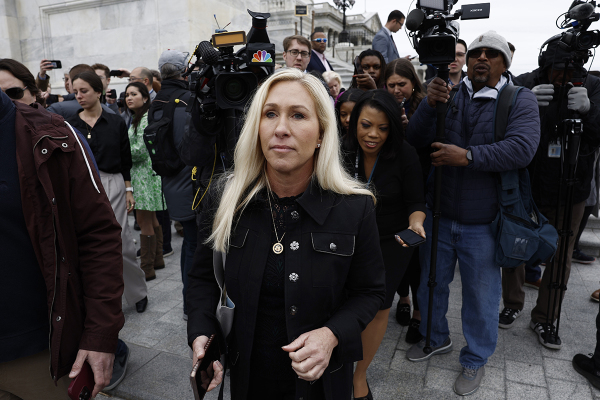Va. School Board Settles Legal Fight on Ten Commandments Display
A Virginia school board has settled its legal fight to display a set of historical documents that would have included the Ten Commandments at a public high school.
Giles County School Board voted unanimously on Thursday morning to accept a resolution that allows for the display in its current status, which has the Ten Commandments replaced with a history textbook page about influences on American views on government.
Mathew Staver, founder and chairman of Liberty Counsel – the group defending Giles County in court – told The Christian Post that he was "pleased" with the result of the decision.
"We are pleased. The suit is over and the ACLU was paid no attorney's fees. The displays will continue and the Ten Commandments remains," said Staver.
"The frame having the text of the Ten Commandments was replaced with the 'Roots of Democracy' frame that contains the Ten Commandment tablets in front of Mount Sinai, showing the Ten Commandments as the foundational root of our country."
In 1999, officials at Narrows High School in Giles County posted a display of several historical documents at the behest of a private citizen. The framed copies of documents included the Bill of Rights, Lady Justice, the Virginia Statute of Religious freedom, the Mayflower Compact, the Magna Carta, the Declaration of Independence, and the Decalogue.
In December 2010, the Freedom From Religion Foundation sent a letter of protest to the school over the Ten Commandments being on display. Soon after, the foundation and the Virginia chapter of the American Civil Liberties Union filed suit. While the case was being heard, Giles County School Board voted to remove the Ten Commandments from the display, replacing it with a page from a history textbook titled "The Roots of Democracy."
The textbook page briefly describes the many influences on American government, listing Ancient Rome, the Magna Carta, and the Enlightenment, among others. It also talks of "Judeo-Christian" influences, saying that "The values found in the Bible, including the Ten Commandments and the teachings of Jesus, inspired American ideas about government and morality."
Rebecca Glenberg, legal director for the ACLU of Virginia, told CP that she agrees with the settlement given that it results in the permanent removal of the Decalogue from the display.
"Assuming that the judge approves the settlement agreement, we are very pleased with the resolution of this case," said Glenberg.
"Our clients are satisfied that with the Ten Commandments removed, the schools will no longer be promoting any particular religious beliefs and will be a more welcoming environment for students of minority faiths or of no faith at all."
While Glenberg and her clients are satisfied with the settlement, one church-state watchdog group that has closely monitored the case is less pleased.
Joseph Conn, spokesman for the Americans United for Separation of Church and State, told CP that he took issue with the textbook page that replaced the Ten Commandments part of the display.
"The U.S. Constitution is a secular document that mandates a secular government. It says nothing about the Commandments or the teachings of Jesus," said Conn.
"Most Americans are Christians and the Christian faith certainly has influenced morality for many, but the Commandments are not the basis of constitutional law."






















